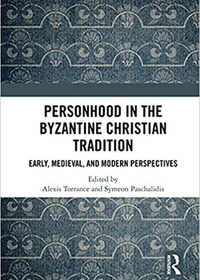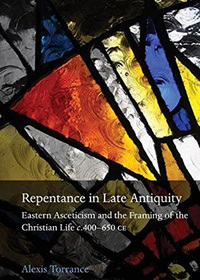
- University of Notre Dame
- Assistant Professor
- Affiliation During NDIAS Fellowship: University of Oxford
- Residential Fellow (2010-2011)
- “A Critical Assessment of Patristic Precedents for Contemporary Theologies of the Person”
Alexis Torrance recently completed his D.Phil. at the University of Oxford, where he served as Tutor in Byzantine Church History on the Faculty of Theology. He specializes in the concepts of repentance and sanctity in Christian late antiquity, as well as the notions of personhood in both early Christianity and modern systematic theology.
He is the author of “Precedents for Palamas’ Essence-Energies Theology in the Cappadocian Fathers” in Vigiliae Christianae (2009), “Standing in the Breach: the Significance and Function of the Saints in the Letters of Barsanuphius and John of Gaza” in Journal of Early Christian Studies (2009), and “Repentance as the Context of Sainthood in the Ascetical Theology of Mark the Monk” in P. Clarke and T. Claydon (eds.), Studies in Church History (2010).
Professor Torrance is the recipient of a full doctoral award from the Arts and Humanities Research Council (2008-2010), the Hugh Pilkiington Scholarship (2007-2009), and the Bampton Studentship (2007-2008).
Publications
-
Personhood in the Byzantine Christian Tradition: Early, Medieval, and Modern Perspectives
Routledge, 2018

Bringing together international scholars from across a range of linked disciplines to examine the concept of the person in the Greek Christian East, Personhood in the Byzantine Christian Tradition stretches in its scope from the New Testament to contemporary debates surrounding personhood in Eastern Orthodoxy. Attention is paid to a number of pertinent areas that have not hitherto received the scholarly attention they deserve, such as Byzantine hymnography and iconology, the work of early miaphysite thinkers, as well as the relevance of late Byzantine figures to the discussion. Similarly, certain long-standing debates surrounding the question are revisited or reframed, whether regarding the concept of the person in Maximus the Confessor, or with contributions that bring patristic and modern Orthodox theology into dialogue with a variety of contemporary currents in philosophy, moral psychology, and political science.
-
Repentance in Late Antiquity: Eastern Asceticism and the Framing of the Christian Life c.400-650 CE
Oxford University Press, 2013

The call to repentance is central to the message of early Christianity. While this is undeniable, the precise meaning of the concept of repentance for early Christians has rarely been investigated to any great extent, beyond studies of the rise of penitential discipline. In this study, the rich variety of meanings and applications of the concept of repentance are examined, with a particular focus on the writings of several key ascetic theologians of the fifth to seventh centuries: SS Mark the Monk, Barsanuphius and John of Gaza, and John Climacus. It is shown how they predominantly see repentance as a positive, comprehensive idea that serves to frame the whole of Christian life, not simply one or more of its parts. While the modern dominant understanding of repentance as a moment of sorrowful regret over past misdeeds, or as equivalent to penitential discipline, is present to a degree, such definitions by no means exhaust the concept for these ascetics. The path of repentance is depicted as stretching from an initial about-face completed in baptism, through the living out of the baptismal gift by keeping the Gospel commandments, culminating in the idea of intercessory repentance for others, after the likeness of Christ’s innocent suffering for the world. While this overarching role for repentance in Christian life is clearest in the works of these ascetics, their thought is thoroughly contextualized through assessments of the concept of repentance in Scripture, the early church, apocalyptic texts, and canonical material.